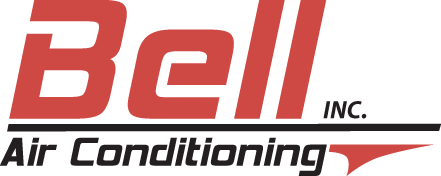Purchasing your first home is exciting. You’re probably juggling numerous details to ensure you’re making the right choice. We believe that gaining insight into your future HVAC system is crucial. The property’s HVAC system represents a substantial investment and source of potential long-term costs, illustrating why a detailed inspection is important for first-time homebuyers.
In the following guide, we’ll outline seven tips for discovering all there is to know about a home’s heating and cooling setup. And if you want a deeper opinion from the pros, don’t hesitate to contact Bell Air Conditioning Inc. Our seasoned technicians can help you compare your options with industry insights that are second to none.
1. Which Kind of HVAC System Does the Home Use?
Start by identifying what type of HVAC system the home has. Furnaces generally last longer compared to air conditioners, and newer types of HVAC products like heat pumps boast average life spans longer than ever. Knowing the make and specific model provides a clear understanding of how much maintenance it will require.
2. What Is the Current System’s Age?
It’s just as smart to learn how old the HVAC system is when you’re considering a potential new home. For the most part, HVAC systems last about 10-12 years. Having the knowledge of when it was installed helps you prepare for any needed servicing or considerations if it might break down. Older systems may be more vulnerable to problems, so fiscal planning for a replacement unit might be needed faster than expected.
3. Is the Warranty Still in Effect?
Be sure to check the HVAC system is still under warranty. If it is, this can lighten the load for maintenance expenses. HVAC warranties often cover parts and labor, but specifics will vary. Make sure you go over any terms that aren’t familiar to ensure you understand your coverage and potential out-of-pocket costs.
4. Does the System Have a Documented Maintenance History?
Don’t forget to check the maintenance history of the HVAC system, if this kind of history is available. This kind of information can demonstrate if the system constantly broke down or how often a tune-up was scheduled. You should at least try to track down a history of key tasks such as changing the air filter, which can indicate it received regularly scheduled tune-ups.
5. Do You Know Its Energy Efficiency Ratings?
Finding a home that features an HVAC system with great energy efficiency means lower utility bills and a smaller environmental impact. Locate the seasonal energy efficiency ratio (SEER) ratings for air conditioning along with the annual fuel utilization efficiency (AFUE) for furnaces. High SEER ratings mean more efficient cooling throughout the season, while higher AFUE ratings indicate that the fuel is more effectively burned for useable heat.
6. Did You See Any Problems After Your Own Inspection?
Even without heating and cooling expertise, it’s still a good idea to examine the HVAC system yourself. Keep an eye out for signs of problems that haven’t been mentioned by the seller. This includes strange noises, unequal airflow and attempts to hide any serious damage.
7. Is an Experienced HVAC Technician Available to Help?
If you’re unsure about the overall state of the HVAC system, it’s never a bad idea to get an assessment and recommendation from experienced HVAC professionals. They are skilled at identifying things you might not, including leaking coolant, bad electrical connections or flawed ductwork.
A Call with Bell Air Conditioning Inc Helps Take the Stress Out of Your Home-Buying Journey
Finding your first home is meant to be a joyful event, and Bell Air Conditioning Inc can ensure it stays that way. Connect with us at 254-307-9572. We can discuss how our HVAC services help make this process smoother, giving you what you need to make an offer with confidence.
